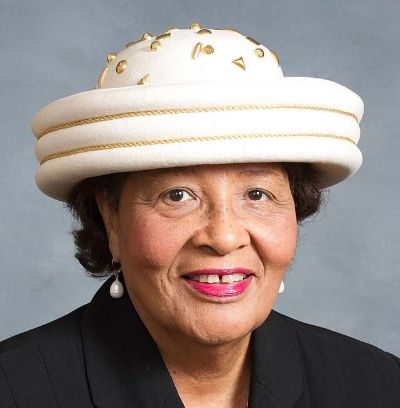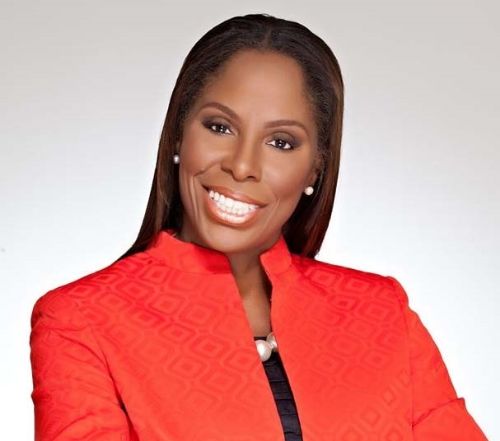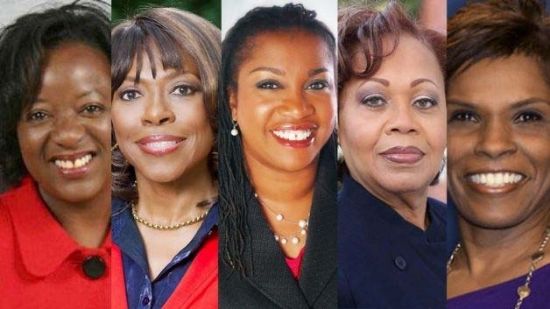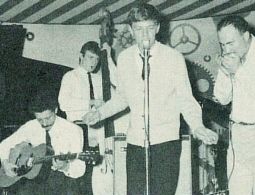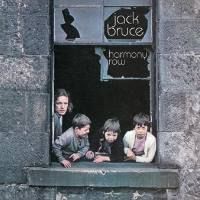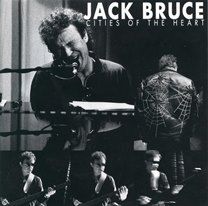President Obama held a press conference yesterday to discuss the mid-terms and his plans for the next two years two and a half months of his presidency, 805 days to be exact. The president has an advantage there, by the way. During those 805 days, if history is any guide, John Boehner’s and Ted Cruz’s Congress will be in session about 200 days … total.
The president also sent a letter to make sure that the important point was not missed because, frankly, the White House press corps’ interests are quite different from the American peoples’. From the White House:
… what stands out to me is that the message Americans sent yesterday is one you’ve sent for several elections in a row now. You expect the people you elect to work as hard as you do. You expect us to focus on your ambitions — not ours — and you want us to get the job done. Period.
I plan on spending every moment of the next two years rolling up my sleeves and working as hard as I can for the American people. This country has made real and undeniable progress in the six years since the 2008 economic crisis. But our work will not be done until every single American feels the gains of a growing economy where it matters most: in your own lives.
While I’m sure we’ll continue to disagree on some issues that we’re passionate about, I’m eager to work with Congress over the next two years to get the job done. The challenges that lay ahead of us are far too important to allow partisanship or ideology to prevent our progress as a nation.
The president was welcome to constructive changes to the Affordable Care Act, he asked for Congress’ help in procuring funds to fight Ebola and authorizing the use of military force against ISIL, and looked forward to working together on the budget, which expires on December 11. He hoped that comprehensive immigration reform could be passed.
But what he did not do is back down on his plans to issue an executive order expanding the deferred action program, giving millions of people who lack documentation a chance to get out from under the dark cloud of deportation.
That’s a commitment I made not just to the American people — and to businesses and the evangelical community and the law enforcement folks and everybody who’s looked at this issue and thinks that we need immigration reform — that’s a commitment that I also made to John Boehner, that I would act in the absence of action by Congress.
So before the end of the year, we’re going to take whatever lawful actions that I can take that I believe will improve the functioning of our immigration system. […]
But what I’m not going to do is just wait. I think it’s fair to say that I’ve shown a lot of patience and have tried to work on a bipartisan basis as much as possible, and I’m going to keep on doing so. But in the meantime, let’s figure out what we can do lawfully through executive actions to improve the functioning of the existing system.
And when asked whether taking this action would somehow “poison the well”, a well that the Republicans have refused to drink from for 4 years, he called bs on the notion that the people upset by his actions are people who have any interest in immigration reform:
I have no doubt that there will be some Republicans who are angered or frustrated by any executive action that I may take. Those are folks, I just have to say, who are also deeply opposed to immigration reform in any form and blocked the House from being able to pass a bipartisan bill. […]
… if, in fact, there is a great eagerness on the part of Republicans to tackle a broken immigration system, then they have every opportunity to do it. My executive actions not only do not prevent them from passing a law that supersedes those actions, but should be a spur for them to actually try to get something done.
The president used the phrase “two years” over and over and over again throughout the press conference (I counted 12).
President Obama will not allow the Republicans to nullify the 2012 presidential election with their claims of a mandate from a low turnout mid-term election.
To which I say, “Thanks, Obama”. 🙂
More …
Transcript. Selected quotes follow.
His focus, post-election:
I think that every election is a moment for reflection, and I think that everybody in this White House is going to look and say, all right, what do we need to do differently.
But the principles that we’re fighting for, the things that motivate me every single day and motivate my staff every day — those things aren’t going to change. There’s going to be a consistent focus on how do we deliver more opportunity to more people in this country; how do we grow the economy faster; how do we put more people back to work.
And I maybe have a naïve confidence that if we continue to focus on the American people, and not on our own ambitions or image or various concerns like that, that at the end of the day, when I look back, I’m going to be able to say the American people are better off than they were before I was President. And that’s my most important goal.
On his focus on the American people:
What’s most important to the American people right now, the resounding message not just of this election, but basically the last several is: Get stuff done. Don’t worry about the next election. Don’t worry about party affiliation. Do worry about our concerns. Worry about the fact that I’m a single mom, and at the end of the month it’s really hard for me to pay the bills, in part because I’ve got these huge child care costs.
Do worry about the fact that I’m a young person who’s qualified to go to college, but I’m really worried about taking $50,000 a year out in debt and I don’t know how I’d pay that back.
Do worry about the fact that I’m a construction worker who has been working all my life, and I know that there’s construction work that should be done, but right now, for some reason, projects are stalled.
If we’re thinking about those folks I think we’re, hopefully, going to be able to get some stuff done.
On immigration:
In terms of immigration, I have consistently said that it is my profound preference and interest to see Congress act on a comprehensive immigration reform bill that would strengthen our borders; would streamline our legal immigration system so that it works better and we’re attracting the best and the brightest from around the world; and that we give an opportunity for folks who’ve lived here, in many cases, for a very long time, may have kids who are U.S. citizens, but aren’t properly documented — give them a chance to pay their back taxes, get in the back of the line, but get through a process that allows them to get legal.
The Senate, on a bipartisan basis, passed a good bill. It wasn’t perfect, it wasn’t exactly what I wanted, but it was a sound, smart, piece of legislation that really would greatly improve not just our immigration system but our economy, and would improve business conditions here in the United States — and make sure that American-born workers aren’t undercut by workers who are undocumented and aren’t always paid a fair wage and, as a consequence, employers who are breaking the rules are able to undercut folks who are doing the right thing.
So we got a bipartisan bill out of the Senate. I asked John Boehner at that point, can we pass this through the House? There’s a majority of votes in the House to get this passed. And Speaker Boehner I think was sincere about wanting to pass it, but had difficulty over the last year trying to get it done.
So when he finally told me he wasn’t going to call it up this year, what I indicated to him is I feel obliged to do everything I can lawfully with my executive authority to make sure that we don’t keep on making the system worse, but that whatever executive actions that I take will be replaced and supplanted by action by Congress. You send me a bill that I can sign, and those executive actions go away.
On working with Congress:
The fact is that most of my interactions with members of Congress have been cordial and they’ve been constructive. Oftentimes, though, we just haven’t been able to actually get what’s discussed in a leadership meeting through caucuses in the House and the Senate to deliver a bill.
The good news is that now Mitch McConnell and John Boehner are from the same party; I think they can come together and decide what their agenda is. They’ve got sufficient majorities to make real progress on some of these issues. And I’m certainly going to be spending a lot more time with them now because that’s the only way that we’re going to be able to get some stuff done.
And I take them at their word that they want to produce. They’re in the majority; they need to present their agenda. I need to put forward my best ideas. I think the American people are going to be able to watch us and they’re paying attention to see whether or not we’re serious about actually compromising and being constructive. And my commitment to them — and I’ve said this when I spoke to them — is, is that anywhere where we can find common ground, I’m eager to pursue it.
On the question about why we are not “winning” against ISIL:
Well, I think it’s too early to say whether we are winning, because as I said at the outset of the ISIL campaign, this is going to be a long-term plan to solidify the Iraqi government, to solidify their security forces, to make sure that in addition to air cover that they have the capacity to run a ground game that pushes ISIL back from some of the territories that they had taken, that we have a strong international coalition that we’ve now built, but that they are on the ground providing the training, providing the equipment, providing the supplies that are necessary for Iraqis to fight on behalf of their territory.
And what I also said was that in Syria that’s been complicated and that’s not going to be solved any time soon. Our focus in Syria is not to solve the entire Syria situation, but rather to isolate the areas in which ISIL can operate. And there is no doubt that because of the extraordinary bravery of our men and women in uniform, and the precision of our pilots and the strikes that have taken place, that ISIL is in a more vulnerable position and it is more difficult for them to maneuver than it was previously.
On dealing with House and Senate leadership:
[what] I’d like to do is to hear from the Republicans to find out what it is that they would like to see happen. And what I’m committing to is making sure that I am open to working with them on the issues where they think that there’s going to be cooperation.
Now, that isn’t a change, because I’ve suggested to them before that where they think there’s areas of cooperation, I’d like to see us get some things done. But the fact that they now control both chambers of Congress I think means that perhaps they have more confidence that they can pass their agenda and get a bill on my desk. It means that negotiations end up perhaps being a little more real because they have larger majorities, for example, in the House and they may be able to get some things through their caucuses that they couldn’t before.
But the bottom line that the American people want to know and that I’m going to repeat here today is that my number-one goal — because I’m not running again, I’m not on the ballot, I don’t have any further political aspirations — my number-one goal is just to deliver as much as I can for the American people in these last two years. And wherever I see an opportunity, no matter how large or how small, to make it a little bit easier for a kid to go to college, make it a little more likely that somebody is finding a good-paying job, make it a little more likely that somebody has high-quality health care — even if I’m not getting a whole loaf, I’m interested in getting whatever legislation we can get passed that adds up to improved prospects and an improved future for the American people.
On the Affordable Care Act:
On health care, there are certainly some lines I’m going to draw. Repeal of the law I won’t sign. Efforts that would take away health care from the 10 million people who now have it and the millions more who are eligible to get it we’re not going to support. In some cases there may be recommendations that Republicans have for changes that would undermine the structure of the law, and I’ll be very honest with them about that and say, look, the law doesn’t work if you pull out that piece or that piece.[…]
And despite some of the previous predictions, even as we’ve enrolled more people into the Affordable Care Act and given more people the security of health insurance, health care inflation has gone done every single year since the law passed, so that we now have the lowest increase in health care costs in 50 years, which is saving us about $180 billion in reduced overall costs to the federal government in the Medicare program.
On what President Obama and his administration will be focusing on for the next two years:
I told them this last week and I told them this this morning — we had this incredible privilege of being in charge of the most important organization on Earth, the U.S. government and our military, and everything that we do for good around the world.
And there’s a lot of work to be done to make government work better, to make Americans safer, to make opportunity available to more people, for us to be able to have a positive influence in every corner of the globe — the way we’re doing right now in West Africa. And I’m going to squeeze every last little bit of opportunity to help make this world a better place over these last two years.
And some of that is going to be what we can do administratively, and simple things like how do we make customer service better in every agency. Are there things we can do to streamline how our veterans access care? Are there better ways that we can make businesses understand the programs that are available to them to promote their business or exports?
On why Democratic Party principles are not resonating with the American people:
Part of what I also think we’ve got to look at is that two-thirds of people who were eligible to vote just didn’t vote. One of the things that I’m very proud of in 2008 and 2012 when I ran for office was we got people involved who hadn’t been involved before. We got folks to vote who hadn’t voted before, particularly young people.
And that was part of the promise and the excitement was if you get involved, if you participate, if you embrace that sense of citizenship, then things change — and not just in abstract ways, they change in concrete ways. Somebody gets a job who didn’t have it before. Somebody gets health care who didn’t have it before. Or a student is able to go to college who couldn’t afford it before. And sustaining that, especially in midterm elections, has proven difficult; sustaining that sense of, if you get involved and if you vote then there is going to be big change out there. And partly I think when they look at Washington, they say, nothing is working and it’s not making a difference, and there’s just a constant slew of bad news coming over the TV screen, then you can understand how folks would get discouraged.
But it’s my job to figure this out as best I can. And if the way we are talking about issues isn’t working, then I’m going to try some different things.
On his optimism:
But I’ll close with what I said in my opening statement. I am really optimistic about America. I know that runs counter to the current mood, but when you look at the facts, our economy is stronger than just about anybody’s. Our energy production is better than just about anybody’s. We’ve slashed our deficit by more than half. More people have health insurance. Our businesses have the strongest balance sheets that they’ve had in decades. Our young people are just incredibly talented and gifted, and more of them are graduating from high school, and more of them are going on to college, and more women are getting degrees and entering into the workforce.
And part of the reason I love campaigning is you travel around the country, folks are just good. They’re smart and they’re hardworking. And they’re not always paying a lot of attention to Washington, and in some cases they’ve given up on Washington. But their impulses are not sharply partisan, and their impulses are not ideological. They’re really practical, good, generous people. […]
And my job over the next couple of years is to do some practical, concrete things — as much as possible with Congress; where it’s not possible with Congress, on my own — to show people why we should be confident, and to give people a sense of progress and a sense of hope.
In conclusion:
But I think more than anything what I want to communicate over these next two years is the promise and possibility of America. This is just an extraordinary country. And our democracy is messy. And we’re diverse and we’re big. And there are times where you’re a politician and you’re disappointed with election results. But maybe I’m just getting older — I don’t know. It doesn’t make me mopey. It energizes me because it means that this democracy is working. And people in America were restless and impatient, and we want to get things done. And even when things are going good, we want them to do better. And that’s why this is the greatest country on Earth. That’s why I’m so privileged to have a chance to be President for the next couple years.



